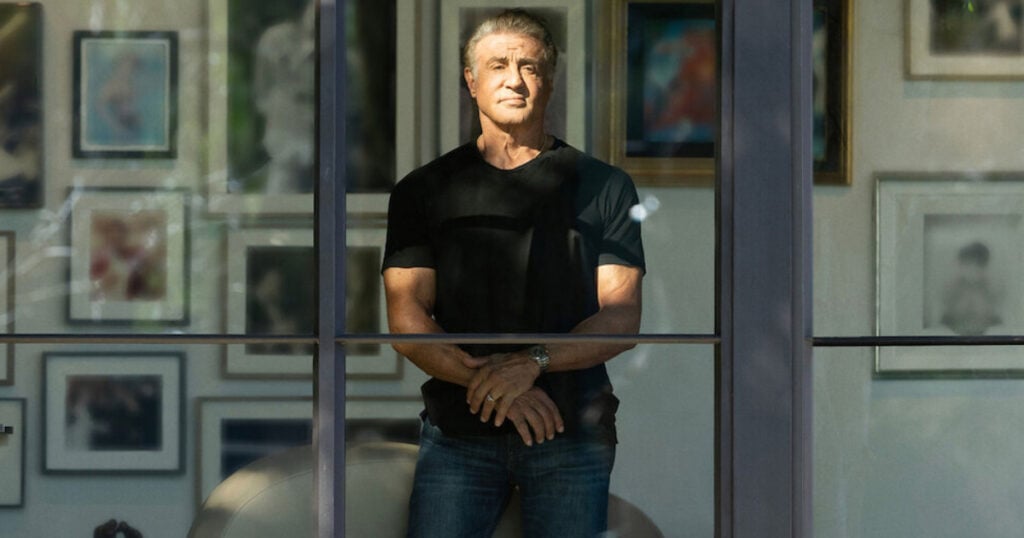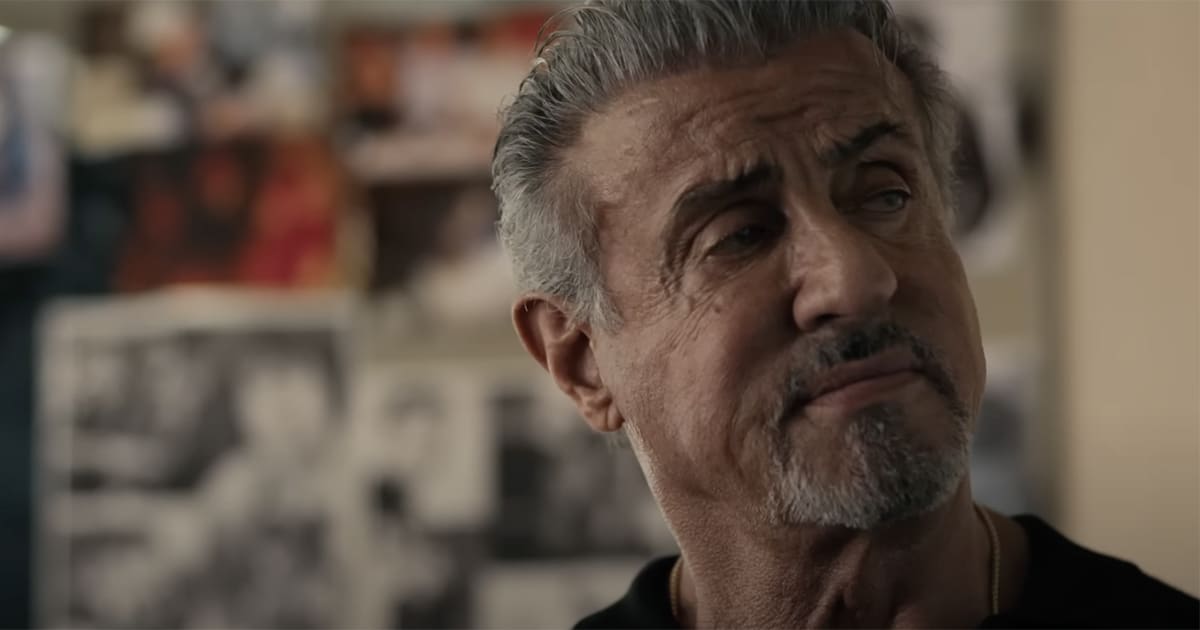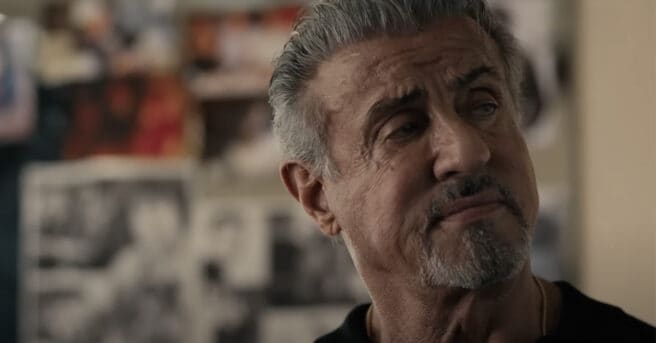Netflix’s Sly is an inspiring, reverent account of Sylvester Stallone’s rise to superstardom in the wake of Rocky.
PLOT: The life of Sylvester Stallone, from his humble origins to eventual superstardom.
REVIEW: If you’re a regular visitor to this site, you’ll know many of us here are huge Sylvester Stallone fans. I do a show called Sylvester Stallone Revisited on JoBlo Originals, and interviewing the man was a highlight of my career. As such, it was a thrill that this year’s edition of TIFF paid tribute to my idol by premiering the new doc, Sly, which hits Netflix later this fall. A feature-length account of Stallone’s life and time, the ninety-minute doc, which Thom Zimny directs, definitely serves as an inspiring, respectful account of Sly’s life and times. If you’re looking for dirt, go elsewhere – but if you want a deeper appreciation of the icon’s life as an artist, this is for you.
By this point, Stallone’s rise to fame has become nearly mythological. Everyone talks about how he came from nothing and became a star by writing Rocky and refusing to allow the producers to cast anyone but him in the lead. While some say he was a complete unknown at the time, the doc zeroes in on the fact that his first big film, The Lords of Flatbush, was critically acclaimed and that Sly had already contributed some dialogue to the screenplay, meaning he wasn’t a totally unknown quantity (Quentin Tarantino raves about his performance in an on-camera interview). The movie skips over his stint working for Roger Corman, but it does a good job illustrating that Sly was a self-made man, coming from origins beyond humble.
The doc focuses mainly on Sly’s rise to fame as Rocky (and then Rambo). Still, an unexpected twist puts the focus on Stallone’s complicated relationship with his father, Frank Sr, who was emotionally and physically abusive. Their relationship remained frayed throughout Stallone’s life, with the dad penning rip-off screenplays that exploited his connection to Rocky. One insightful part of the doc follows Stallone in the late eighties as he tried to mend his relationship with his father by building him a polo team (Stallone could have played professionally), only to get taken out by the older man in a vicious foul captured on camera by Entertainment Tonight. From that moment on, Stallone never played the sport again.

While Sly remains tight-lipped about his marriages and children, Sage Stallone is a big part of the doc, with Sly opening up about how Rocky V might have failed because it was just too personal (Sage played his on-screen son). Much of his Hollywood career post First Blood is glossed over, with only Copland getting much in the way of screentime, while Stallone maintains the movie he’s most proud of is Rocky Balboa. His misguided stint in comedy is acknowledged through clips from Oscar and Stop, or My Mom Will Shoot, although the embarrassing Rhinestone is only briefly name-checked (no clips). The icon also opens up about the physical cost of being an action star, noting that his body never fully recovered from the trauma it endured during the production of the first Expendables film.
While I’d love to see a more exhaustive look at Stallone’s life and career, Sly succeeds at its goal, which is to acknowledge and appreciate the man’s legacy as an artist. What’s often glossed over in accounts of his career is that Stallone is just as prolific a writer as an actor and an accomplished painter. This documentary does a good job of revealing his inner life as an artist, even if it’s less definitive than hardcore fans might have wanted. It runs 90 minutes, but I could have easily watched a six-hour version.
Sly is now streaming on Netflix. Look for our deep-dive interview with director Thom Zimny on Monday.


